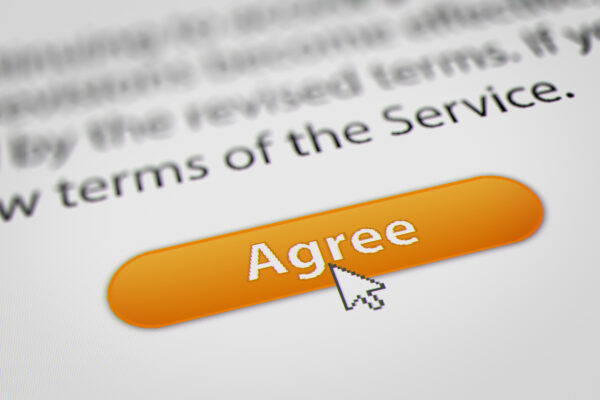
As a professional artist, if you have a website to sell your artwork, collect personal data for newsletter signups or provide information to readers, it needs to meet certain legal requirements.
Legal requirements for your website
The legal aspect of your website is an crucial exercise to ensure your website isn’t sued, deleted or hidden from search engines.


Publish a privacy policy
We all know that personal data is valuable and needs protection. Visitors to your site need to know that you won’t sell their information and that whatever data is share with you is protected.
Your privacy policy should let your users know what data your site is collecting about them, how they are being tracked and their options for opting out. It should also provide information on the best way to contact you should they have any questions or concerns.
Cookies
Cookies are how your browser remembers where you’ve been. Each website you visit has a piece of data stored within your web browser that the website can retrieve at a later time. Each website you visit will now offer you a chance to opt in, opt out or chose your own cookies. Ironically, it is cookies that remember what you agreed when you first visited the site so you don’t get a pop-up every time you visit. Your site will have to have the same.
There are free cookie checkers online. Simply give them your website address and they will let you if it meets the requirements.


E-commerce security
If you are selling online, you will need to have strong payment security. The good news is that if you are using a reputable e-commerce store or software, this is already taken care of.
Tip: Artweb websites offer a fully integrate e-commerce store with advanced encryption protocol to protect customer data.
Copyright and plagiarism
Bloggers beware! One of the most common issues websites face is breaking copyright with unapproved use of images and photographs, which can lead to hefty fines. There is a complicated legal system for using images but getting express permission (preferably written) from the owner of the image is paramount. You should also follow any rules or requests for caption and byline information. Images past a certain date may be out of copyright, but you need to check! And never take photos directly from Google Images, or other search engines.
There are companies dedicated to rooting out websites that use images without permission and hefty fines or charges usually follow.
Don’t assume because an image is on someone else’s site (including free sharing sites) that you can use it.
Remember, your best options are to use your own photos, ask for permission to use other people’s images, or use paid reputable image sharing sites (like Adobe or Canva) and follow all image credit instructions.
Content licensing and attribution
Who owns what? This part of your website protects your content. Depending on what you outline, companies can republish or repurpose published material through a legal agreement often referred to as a copyright license. You might give this license for your own content, or request one. An example of this might be asking if you can re-publish a review written by a third party.
Anti-spam laws
If you send out emails of any kind — newsletters, receipts or alerts — you need to make sure your website complies with anti-spam laws for your country or region that protect the email recipient from getting unsolicited emails, which can be stolen from insecure website storage.
Disclaimers
The disclaimer is your get-out-of-jail-free card. A general statement that sets out what you are responsible for and what you aren’t to limit your liability for the information you are giving. There are many templates online, while website builders will include a generic one for you.
Accessibility


Everyone should be able to access the information on your website. And your site needs to meet its obligations to create an inclusive website.
Alt text, for example, is used to describe an image to visitors who use screen readers. Some images may have a lot going on, such as some complex graphics, so remember to extract the essential meaning or purpose of an image. See this guide from Harvard University on how to write alt text content for images. Other good accessibility elements relate to the colors used on your site to ensure it is accessible to those with dyslexia, text size for visual impairment and in some cases easy-read versions of documents.
There are a range of free accessibility checkers online that will review your site after you input your website address.
Good accessibility will also help Google rankings.
Explore more ways to create the perfect website.







